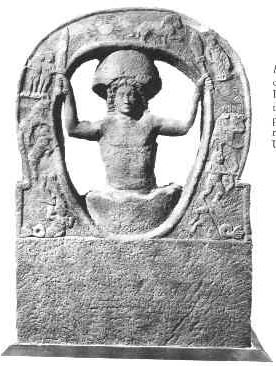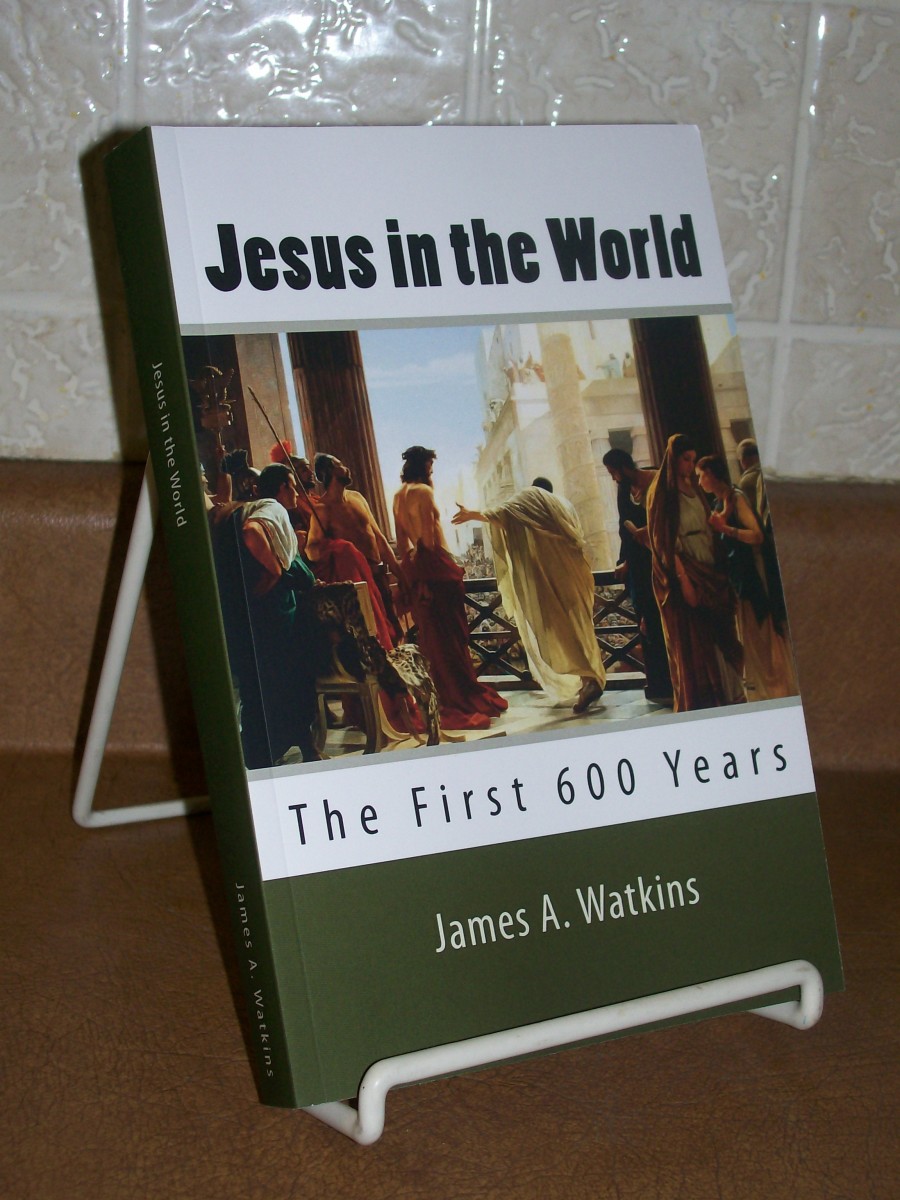Letter to a Christian
God created man and man created God. So is it in the world. Men make gods and they worship their creations. If would be fitting for the gods to worship men. (Gospel of Philip)
The Sun God, Mithras

Dear Friend,
It is St.John's Day, June the 24th. The "St. John" referred to is John the Baptist. St. John's Day was, historically, the feast of the Midsummer, the day on which the events of A Midsummer Night's Dream took place. Properly speaking it is the last day of the solstice - which means, literally, "standing still sun", since for three days the sun doesn't seem to move. It appears to rise in exactly the same place on the horizon. It is only after this, on the 24th, that the sun begins to move again and the length of the day begins to decrease. In ancient times this was the most important time of the year, only matched by the Midwinter solstice.
The significance of that, of course, is that it is on the fourth day after the Midwinter solstice, when the sun begins to move again, and the light begins to increase, December 25th, that we place the birth of Jesus. December 25th was also known as the birthday of the ancient Sun god Mithras, who was also in ancient times seen as a redeemer and a saviour, and who shares many characteristics with the mythological Jesus: by which I don't mean that Jesus was a myth, but that mythological traditions have become attached to his name. The "borrowing" of Mithras' birthday is one of these.
The Fifth Monarchy

The following is written in the spirit of ecumenical debate.
Friend, my problem with your philosophy is that you always appear to be telling God what to think.
You appear to think that you know more than God. You define God. You think that God has to fit within your definitions. You limit God by your definitions, when, in fact, the only possible definition of God is that he is indefinable.
You say God is a trinity, which is tantamount to saying that God can be defined by the number three. Why not four? Why not one? Why not two? Why not five, seven, eleven, thirteen, seventeen, nineteen, twenty-three, one hundred and thirty-seven? I pick these numbers because they are all prime numbers, that is they are indivisible except by one, and they are all the beginning of an infinite sequence of multiples of themselves. Every number has meaning. Why limit God by number? God is infinite. God is beyond number and yet containing every number, as numberless as the stars, as infinite as all time and all space and all possibility throughout time.
And why give God a name even? Why give him a place? The drama is infinite and infinitely variable. Why say only one moment in history matters? This is a parochial view of history and a parochial view of God, not a lot different from those Fifth Monarchist believers of the English Civil War who - because of the limitations of their understanding and knowledge - could only imagine God as an Englishman.
And you speak with such certainty about things which are uncertain, as if you are trying to measure the sky. Where does your certainty come from? Not from objective truth, which is measurable and definable, testable in the laboratory. You cannot prove anything you say. But it does have subjective truth and this I can believe in. It is why I continue to listen to you, since I believe in the objective existence of subjective truths. But if it is subjective truth we are dealing with, then why should your truth be considered greater than another's since truth, like number, is infinite?
This is not the same as being in error, or telling lies, by the way: these things exist too, and it's one of the problems of the world that sometimes we are deliberately fed untruths. Sometimes - indeed often - untruths have been said in the name of Christianity.
You talk about the absolute and then diminish the absolute. You take the absolute and then say that it only has a certain name, a certain place, that it is Jewish and Christian, that it cannot appear to a Chinese person, or a Red Indian say, except in your terms, that it was only ever written in Hebrew and Greek, and then translated - not even in Aramaic, the language of Jesus himself, since none of your books were ever written in that language - and that God only ever got round to writing one book (though, of course, it is many books). Once more it's like you are telling God what to think. If God appears to a Chinese person, speaking in Chinese, with Chinese cultural values attached (because all language contains culture) you say that is not God.
God speaks

I don't think that anyone with open eyes and open ears and an open mind and an open heart can read the Tao Te Ching or the Buddhist sutras or the Bhagavad Gita and not recognise God in almost every line. God speaks and you ignore him. God recites his poetry and you say it is not God. Why should God be so dumb? Why should he be so limited? Why should he be so uncommunicative? How else do you recognise God except through his prophets and his holy men, of whatever time, of whatever nation?
In Latin America in the 1980s God appears in a Latin American context through Latin American priests identifying with the suffering of the Latin American people, with Latin American martyrs like Archbishop Romero and Latin American theologians like Gutierrez. That is, in Latin America at this time God appears in a Roman Catholic context. This is a constant process. It is what Gutierrez is talking about. When he analyses the bible he does so by trying to understand the biblical context, the time in which the texts appear, and then applying their underlying truths to his modern, contemporary situation. That's why he is so good. He understands all time as apostolic.
God suffers as his people suffer. God suffers to stop the suffering. God gives up his life for his people. This drama is eternal and is applicable now, and it is not only Christian. Indeed, in Latin America at the time of which Gutierrez writes the struggle continues within the church itself, since those creating the suffering would also proclaim their Christianity (as do George Bush and Tony Blair now) and would see their actions as being ordained by Christian precepts.
You see Friend, I have greater faith than you. I think that God breaks in through history again and again. Not just once and in one language and one land, but in every time, in every place, amongst people of every faith. But every human definition is always limited so God always appears in a context that us humans understand.
For a Buddhist God appears in a Buddhist context. The Buddha never denied God - he denied the self, which is a different matter. It is to do with a debate between himself and the followers of orthodox Hinduism, which, like Judaism, is a nationalistic religion which the Buddha, like Christ, was attempting to transcend.
In the 17th century in England, in the time of the Civil War, which was a time of great stirring, God was breaking out all over, in text after text. He is imminent. This is why the 5th Monarchists see God in terms of the English politics of the day. They are both right and wrong at the same time. They sense God's imminence, but can only translate it in their own terms which is why they make God an Englishman. The best text from that era (and the one most resonant of God, to me) is the Fiery Flying Roll by Abeizer Coppe, of whom I will write much more one day.
The problem of faith

God is a stirring of the heart, a shaking up of life, a blessing, a hope, a struggle, a hidden dimension, a return. God is a contradiction, unity in diversity, opposition in friendship, male and female, neither and both, possible and impossible, beginning and end. You talk of God as absolute yet split God in two, since you talk of God and his creation as separate. If God is separate from his creation then God cannot be absolute. Think about it. But if God is IN his creation, IS his creation, then God is always imminent, no more than a breath away: an inkling, a stirring, a moment away, in the very air we breathe, in the very substance of matter, as the mind that sustains the Universe.
Here is the problem of faith. You say one faith is right and all others are wrong. But even in your own faith, amongst people who proclaim Jesus Christ as Lord, there is error, isn't this right? There is disagreement. So much evil has been done, and is being done, in that name. So it isn't about faith. It isn't about doctrine or dogma, it is about meaning and context. There are good Christians, there are bad Christians. There are good Jews, there are bad Jews. There are good Muslims, there are bad Muslims. There are battles within all of these faiths about the meaning of their faith. Then surely the point is to reach out across the faith barrier, to find out points of agreement, rather than points of disagreement, to hear what the other faiths have to say.
I started off with John the Baptist, and this is where I will end. The previous paragraph mentions the three great related faiths that arise out of historical Judaism. As the Muslims call us: The People of the Book. In fact there is a fourth: the Mandaean religion of Southern Iraq, who I've spoken of before, followers of John the Baptist, also known as Sabian Mandaeans, or Baptisers, since they practice daily Baptism and have their own ancient books including some that purport to be conversations between John the Baptist (whom they call Yohana) and Jesus (whom they call Yeshu). The word "Manda" from which their name derives means "knowledge" and they are clearly a Gnostic sect, which means that, if John the Baptist was a Gnostic, given that Jesus' mission starts with his Baptism, that Jesus was a Gnostic too.
In Matt 6:22 it says: "The light of the body is the eye: if therefore thine eye be single, thy whole body shall be full of light."
I think this is the hidden truth behind Christianity, the key to the Kingdom of Heaven, and a profoundly Gnostic statement.
© 2008 Christopher James Stone








